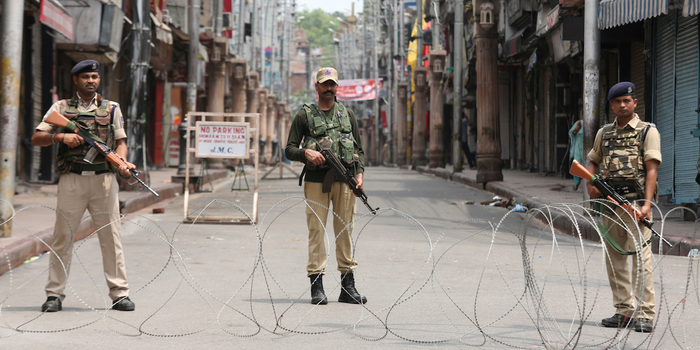The Indian Supreme Court upholds the legality of Article 370 revocation in Kashmir.
The Indian Supreme Court has validated the revocation of Article 370, a constitutional provision that granted special autonomy to the Muslim-majority state of Indian Illegally Occupied Jammu and Kashmir (IIOJK).
The 5-judge constitution bench delivered its verdict, asserting that Article 370 was a temporary provision and its removal was legally sound.
The court’s ruling included significant directives, such as the Election Commission being tasked with organizing elections for the Kashmir assembly by September 30, 2024, and an emphasis on the prompt restoration of statehood to IIOJK.
The controversial move to repeal Article 370 was initiated by the Modi-led government in 2019, allowing individuals from India to purchase land in the disputed Muslim-majority region. This decision came into immediate effect, stirring considerable uproar.
Also read: Kashmir day: 5 Facts about the Kashmir conflict
The international fallout from this development was substantial, with Pakistan responding by severing diplomatic ties with India.
The Pakistani government condemned what it described as brutal human rights violations by the Indian government.
The events leading up to the revocation included the imposition of a lockdown in IIOJK in 2019, accompanied by the arrest of Hurriyat leaders and a significant deployment of Indian troops to the region. The move exacerbated tensions in an already volatile area.
The Modi-led government’s decision to repeal Article 370 was preceded by a crucial Union Cabinet meeting in the official residence of Prime Minister Narendra Modi in New Delhi.
The proposal to reorganize the status of the state was introduced and subsequently implemented, despite its controversial nature.
The Kashmir dispute continues to be a major stumbling block in the normalisation of relations between India and Pakistan.
As the Indian Supreme Court upholds the legality of Article 370 revocation in Kashmir, the implications of the Supreme Court’s recent ruling further underscore the complex and sensitive nature of the situation in the region.
